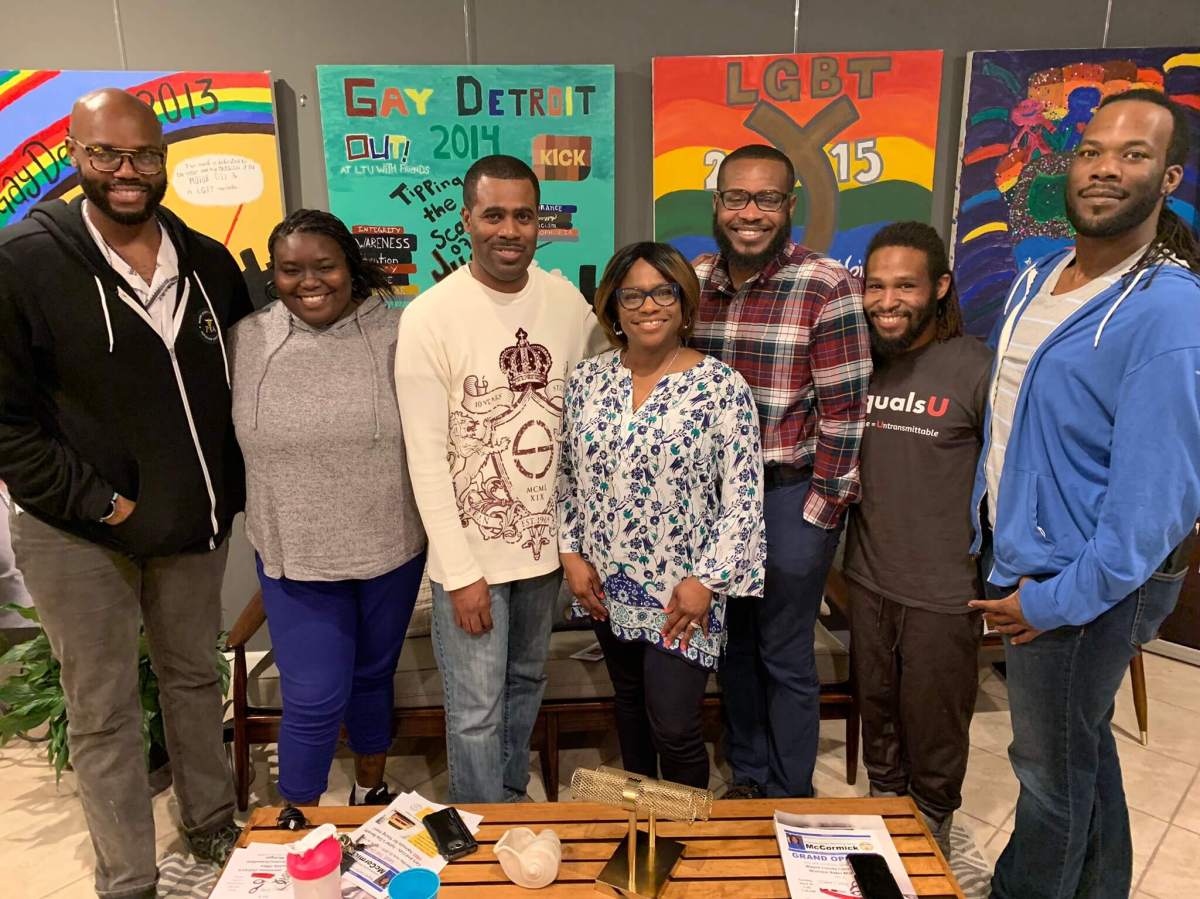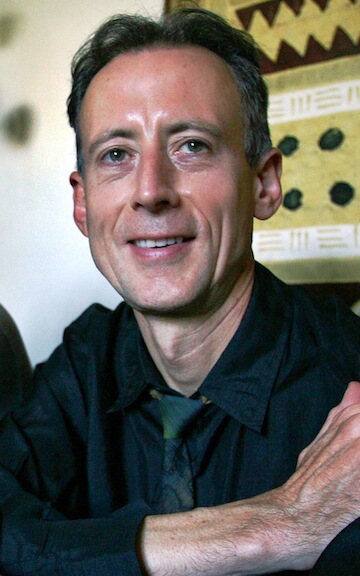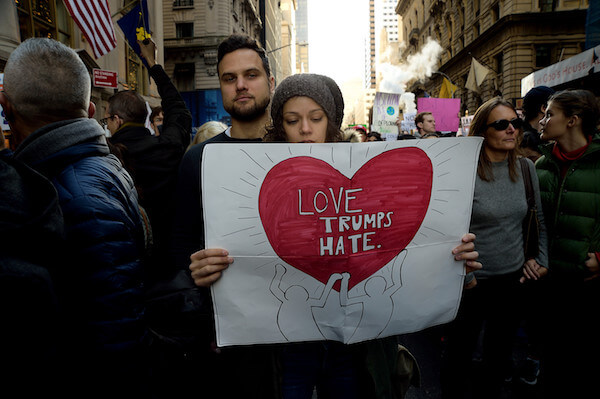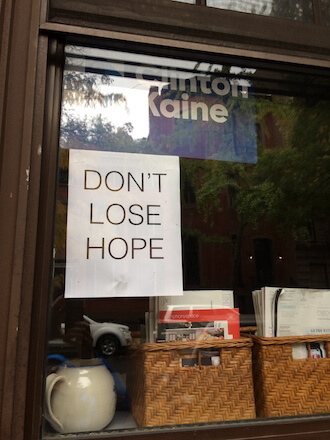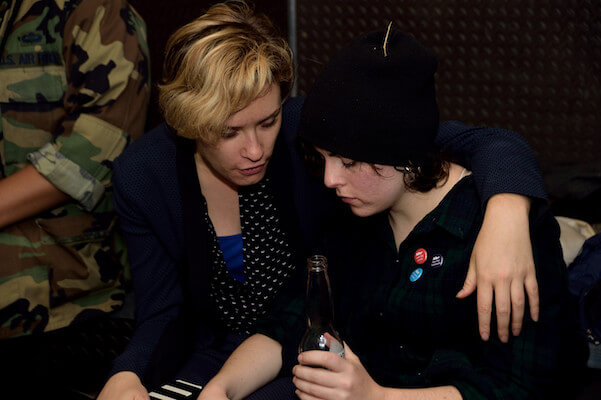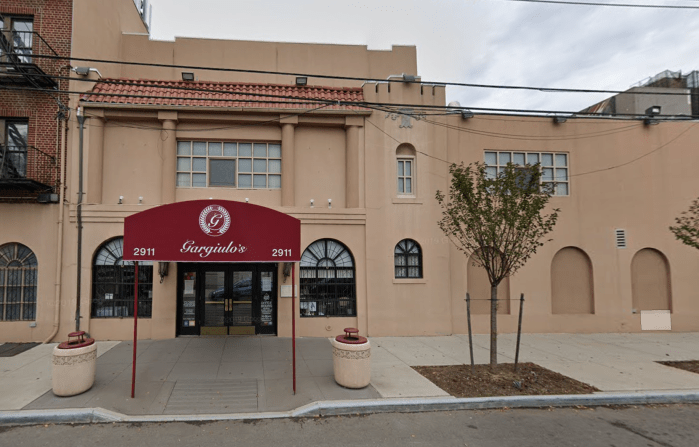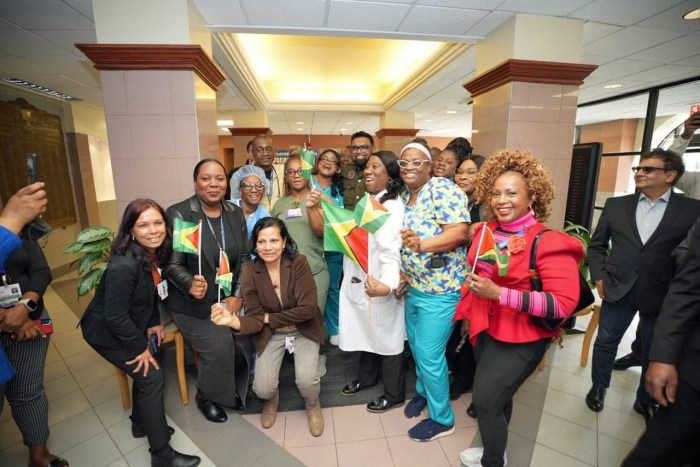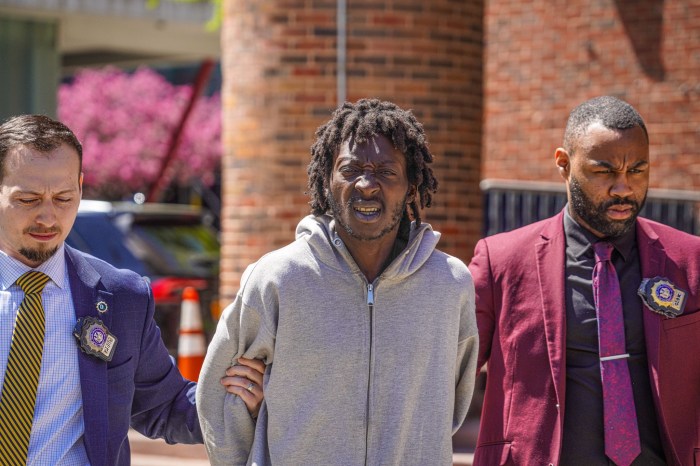Judging purely by the state of national polls, Democratic Presidential nominee Joe Biden is maintaining a steady lead over President Donald Trump with less than two months to go until election day.
But four years after former Secretary of State Hillary Clinton lost despite winning the popular vote by nearly three million votes, it is more clear than ever that battleground states — not the nationwide tally — will determine the winner of an election that has shaped up to be much more of a referendum on the president’s past four years than a typical head-to-head matchup for the White House.
The LGBTQ community — which overwhelmingly went for Clinton in 2016 and is expected to again back this cycle’s Democratic nominee in large numbers — is playing a critical role in the campaign to prevent a repeat of the disastrous 2016 result that triggered a painful four-year stretch during which the Trump administration wreaked havoc on the nation’s queer community, particularly transgender and non-binary Americans. And communities of color, especially Black Americans, are ready to fire a commander-in-chief who has consistently displayed overt racism and refused to rise to the challenge of eradicating bigotry, instead often encouraging it with more than just a wink and a nod.
LGBTQ groups in key swing states are busy trying to boost turnout to prevent repeat of 2016 nightmare
Trump drew the majority of white voters in 2016 and only a fraction of Black voters, but turnout was an issue for Democrats in key swing states. Compared to 2012, turnout among Black voters in 2016 dropped slightly in Michigan and Pennsylvania, but saw more profound dips in Florida, North Carolina, Ohio, and Wisconsin, according to researchers at the Brookings Institution. Nationwide, the share of the total vote represented by African-Americans decreased from 12.9 percent during the Obama-Romney election to 11.9 percent in 2016.
There were differences seen among other racial voting blocs. Voter turnout for Asian-Americans actually increased by almost two percent, while Latinx voter turnout decreased by less than half a percentage point.
Robust efforts are underway to make sure 2016 does not repeat itself in 2020. LGBTQ organizations in swing states have kicked their election outreach into gear, complete with unique state-specific strategies to ensure turnout numbers are as strong as they can be during an election year that has been marred by the coronavirus pandemic and unprecedented political interference by the White House in the US Postal Service.
Those groups are welcoming any help they can get from New Yorkers and residents of other states where the election outcome is not in doubt.
This kind of volunteering can come in different forms, depending on the state. Kathleen Warnock, a Gay City News contributor who felt compelled to get involved in the special election race to put Alabama Democrat Doug Jones into Jeff Session’s former US Senate seat in 2017, was mindful that she doesn’t sound like a local in Montgomery or Tuscaloosa when she jumped in to help in a race that was decided by less than two percentage points.
“I didn’t get on the phone banking but I did help with social media, suggesting ways to promote things, doing things like raising money for buses to take voters to the polls, and sending pizza to people doing parties,” said Warnock, who also helped in organizing rallies in Montgomery, where she once lived and went to school as a teenager.
New Yorkers and others now have additional opportunities to get involved during an election cycle that is highly dependent on virtual organizing and get-out-the-vote efforts.
In Michigan, Jerron Totten, the social outreach coordinator and legislative advocacy specialist at LGBT Detroit, is faced with the task of turning out voters in a state that Trump won by less than one-quarter of a percentage point. While some swing states are seeing closer races than others, Biden has maintained a more consistent lead in Michigan, where he was beating Trump by 10 points in a Morning Consult poll between August 21 and August 30. A poll from Public Policy Polling in late August had Trump trailing Biden by four points, with Libertarian Party nominee Jo Jorgensen stealing three percent of the spotlight and Green Party nominee Howie Hawkins mustering one percentage point.
Totten told Gay City News that his organization is focused on phone banking and text banking since in-person options are limited due to the coronavirus pandemic. He said his team, which is non-partisan because it is a 501(3)(c) non-profit, is not just contacting voters to remind them to vote, but also “aggressively” calling voters who turn out consistently and asking them to help reach those who do not typically vote.
LGBT Detroit is prioritizing in particular Michigan’s 13th Congressional District, which is represented by Congressmember Rashida Tlaib, because, according to Totten, the area has a large population of LGBTQ people of color. And, in light of the Trump administration’s attempts to disrupt the postal service, Totten also emphasized that his team is discouraging voters in Detroit from dropping off their ballots at post offices.
“Here in Michigan we have certified drop-off locations,” Totten said. “Right now we feel that is the safest way to turn in your ballot.”
Those who want to get involved with LGBT Detroit can contact the organization at lgbtdetroit.org/contact or sign up to volunteer online.
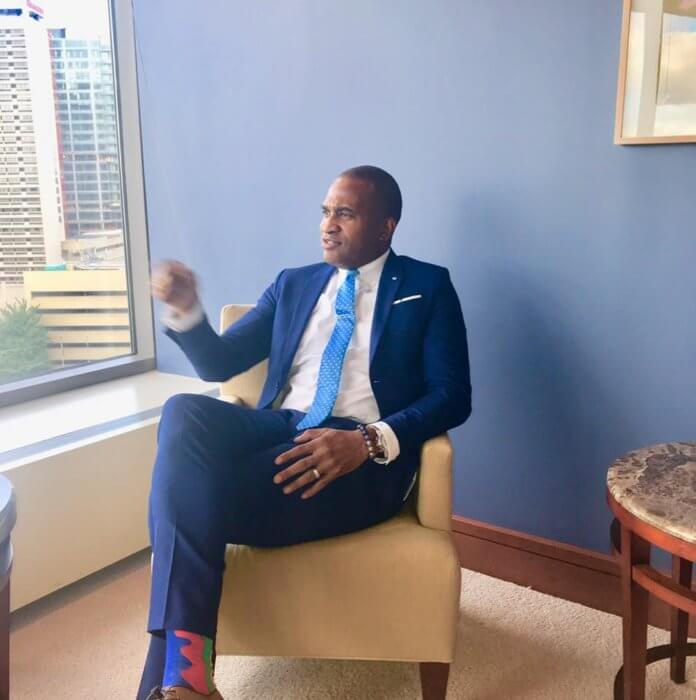
Democrats are also scrambling to avoid a repeat of 2016 in Pennsylvania, where voter surveys have been scattered four years after Trump won by a total of just over 44,000 votes. A Quinnipiac University poll taken on August 31 and September 1 showed Biden with an eight-point advantage over Trump, though a Monmouth University poll taken the same week showed Biden clinging to a four-point lead among registered voters and a razor-thin one-to-three point lead among likely voters.
“We have to focus on Philadelphia,” said Gregory O. Yorgey-Girdy, who serves as co-chair of Liberty City LGBTQ Democratic Club, which organizes queer Democrats in Philadelphia. “If we get people out in Philadelphia to vote, we can overcome a lot of central areas of Pennsylvania.”
Yorger-Girdy said his club is also zeroing in on certain parts of Philadelphia with significant amounts of Black voters as well as LGBTQ people of color, including southwestern, western, and northern parts of the city.
“As a Black man, it is important to me to get young Black voters out,” he said. “What we’ve been doing is going out to areas we typically haven’t been going out to. Within those pockets there are gay Black people, but they’re just not as out or maybe some people are struggling with their identity, so I want to be visible for those folks so they can feel comfortable.”
Yorger-Girdy encourages out-of-staters who would like to assist the club to donate because the coronavirus pandemic interrupted its in-person fundraisers. The club is putting the resources they do have into social media ads, television ads, print ads, and get-out-the-vote efforts, but they’re navigating a tighter budget.
Another way to help out, Yorger-Girdy said, is to phone bank, and those who would like to get involved in the club can email Yorger-Girdy at info@libertycity.com or visit the club’s website at libertycity.org.
“We’ve seen four years of this man who is continually trying to separate and divide,” Yorger-Girdy said. “The negativity, the misinformation, the lies, it’s disgusting. It’s time to stop. We have no excuses whatsoever.”
A similar focus on metro areas is underway In Wisconsin, where Trump carried the state by just over 20,000 votes, A CBS News-YouGov poll released on September 6 showed Joe Biden leading Trump by six points, with four percent undecided and two percent voting for someone else. A Morning Consult poll released on the same day found Biden eight points ahead of Trump
The team at Fair Wisconsin, which is dedicated to advancing and achieving equality for queer residents of the state, is spending a great deal of time assisting folks in the process of ensuring they are registered to vote and helping them obtain absentee ballots.
Megin McDonell, Fair Wisconsin’s executive director, painted a bright picture of the state’s voter outreach efforts, saying that nonprofits and political organizations alike are working collaboratively to reach potential voters, and Fair Wisconsin has been able to bridge different kinds of groups together under one coalition.
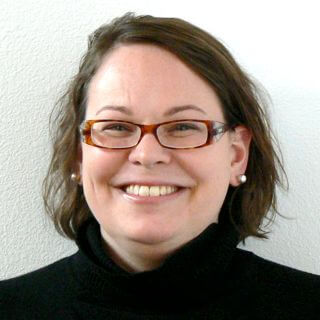
While her organization is marshaling statewide effort on voter turnout, McDonell said Milwaukee County and Dane County, home to the capital city of Madison, a progressive enclave that also includes the enormous University of Wisconsin campus, are of particular importance in the get-out-the-vote campaign because they are the state’s two major metropolitan areas with diverse populations that could pile up large enough Biden majorities to counteract Trump’s vote in smaller towns and rural areas.
McDonell talked about the protests against police brutality and racism that first emerged in the wake of the murder of George Floyd by police in Minneapolis and were refueled following the police shooting of Jacob Blake in Kenosha, in the state’s southeastern corner, last month.
“We want to recognize the historic nature of this moment,” McDonell said. “Racial justice is an LGBTQ issue, and we’re not going to have LGBTQ liberation until we have Black liberation and for people of color. I think the groups in Wisconsin are all recognizing that and following the lead of our amazing people of color-led organizations that are doing that work on the ground.”
Those who would like to help out in Wisconsin can send an email to Fair Wisconsin at info@fairwisconsin.com.
Among the tightest, more hard fought states in the 2020 race, however, is Florida, which Trump carried by just over 100,000 votes in 2016.
An NBC News/ Marist poll released on September 8 had Trump and Biden tied at 48 percent, while a Quinnipiac University poll this month gave a small three-point advantage for Biden. There are signs that Biden is struggling to gain the support he hopes for among Latinx voters there: A poll released this month by Equis Research, a Democratic Latinx research firm, showed Biden leading Trump among Hispanic voters 55 percent to 37 percent, which is 11 points tighter than Clinton’s vote share in 2016 among that voting bloc.
Wes Davis, the field director at Equality Florida, said his team is focusing on Miami-Dade County and central Florida cities like Tampa and Orlando, where he said there has been an influx of Puerto Rican residents displaced by hurricanes.
Equality Florida is welcoming virtual volunteers who would like to make phone calls and send text messages, as well as donations from those who can afford to contribute. Ahead of last month’s primary election, the organization received volunteer help from folks in California, upstate New York, and other areas, he said.
In four volunteer days of action so far, the group has texted 156,000 “pro-equality voters” and trained more than 60 volunteers across the state. It is crucial to reach voters in the state because every county has its own policy regarding voting by mail, Davis explained.
“It is no unknown factor to Americans that Florida is the pathway forward,” Davis said. “Donald Trump understands he needs Florida to win.”
Volunteers can plug into Equality Florida’s Virtual Days of Action at eqfl.org/equality-florida-action-pac-launches-virtual-days-action-2020-election.

Among other groups helping out in battleground states include the Human Rights Campaign (HRC), which has boots on the ground in key locales — more than 160 staffers as of this week — and launched a campaign called “Operation Swing State,” which asks volunteers to make remote voter outreach calls every Tuesday until the election in battleground states. On Labor Day weekend, HRC joined forces with Equality Florida and texted over 24,000 voters.
Sign up for the HRC operation is at mobilize.us/hrc/event/263252.
Another group working the phones on a broader level is National Equality Action Team (NEAT), which works on queer causes and is currently busy with non-partisan voter registration efforts as well as census outreach.
“We’re calling folks, helping to make sure they’re registered, their registration is the right address, and making sure they haven’t been purged [from the voter rolls],” Brain Silva, NEAT’s executive director, said. “Anyone anywhere that has access to a computer and a phone can help get voters registered to vote,” Silva said. “We’d love to have organizations and individuals sign up to male calls. The website for that is theneat.org/vote.”
To sign up for the Gay City News email newsletter, visit gaycitynews.com/newsletter.

